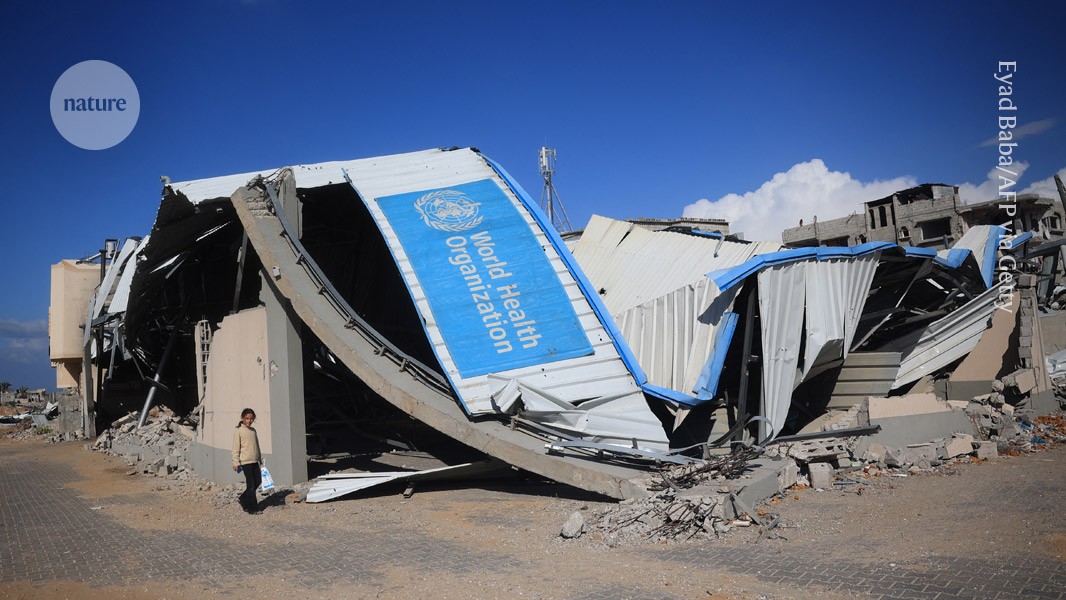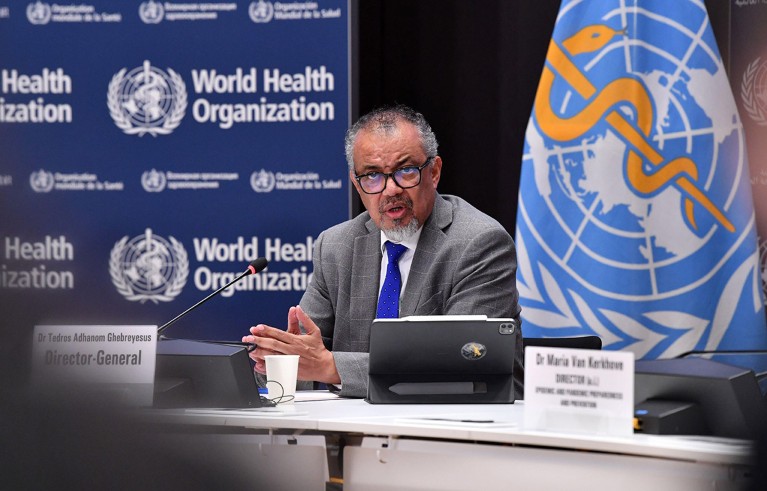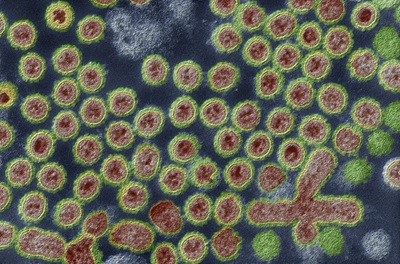What’s next for the World Health Organization? US exit could reshape agency

Few health-policy experts were surprised when US President Donald Trump last month announced that he would pull the United States out of the World Health Organization (WHO). Nor were many shocked when, a few days later, Trump said that he could reconsider the withdrawal if certain unspecified conditions were met. What might happen next is harder to predict.
“His general strategy is to detonate things and then do whatever’s advantageous to him,” says Jesse Bump, a global-health-policy researcher at Harvard University in Cambridge, Massachusetts. “But in the case of WHO, it’s really difficult to imagine anything that would be personally advantageous to him in the short run.”
What Trump’s flurry of executive orders means for science
The US withdrawal will not officially happen until January 2026, so there will be months of uncertainty over budgets and strategic direction at the near-80-year-old agency. Set up by the United Nations, the organization’s goals include expanding universal health coverage and coordinating the world’s response to health emergencies.
Nature spoke to senior figures in global health to gauge what might be next for the WHO and the field.
Budget uncertainty hinders work
Some remain optimistic about the WHO’s future. “It’s a pretty robust organization and I think the WHO will weather this,” says Robert Yates, a political-health economist at the London School of Economics and Political Science. “And if other Western powers step up to defend it and put more money into it, then it might come out a bit stronger.”
But given that the United States contributes about 18% of the WHO annual budget of roughly US$3.4 billion, the uncertainty is already having an impact. Opening the WHO executive board meeting this month, director-general Tedros Adhanom Ghebreyesus said that, even before Trump’s executive order, the WHO was planning to shrink spending because of a shortfall caused by economic difficulties in many donor countries. “The US announcement has made the situation more acute, and we have announced a set of measures with immediate effect,” he said.
The result is that “WHO staff are grounded” says Ilona Kickbusch, a political scientist who specializes in health at the Graduate Institute of International and Development Studies in Geneva, Switzerland. “Nearly every meeting is cancelled and travel to countries is cancelled.”
Is bird flu spreading among people? Data gaps leave researchers in the dark
That’s affecting the agency’s work, she adds. “If you are trying to negotiate a new set of standards or something like that it helps to be in one room.”
Projects that the WHO is currently working on include a Europe-wide push to improve mental-health services and work on the ground after a surge of violence in eastern Democratic Republic of the Congo, providing medical assistance and supplies, supporting health workers and coordinating the emergency response.
How events will play out is hard to judge, she adds, because the WHO’s operations are more complex than its critics often realize. “For Trump, WHO is an international bureaucracy in Geneva,” Kickbusch says. “But it’s actually incredibly complicated.”
Trump’s complaints about the WHO include its handling of the COVID-19 pandemic, the slow pace of reform and what his executive order cites as an “inability to demonstrate independence from the inappropriate political influence of WHO member states”.
Regional offices might still be funded
Much of the WHO’s work is routed through six regional offices. One of these, the Pan American Health Organization (PAHO), receives a separate funding stream from the US government, which could continue to be paid even after the US withdraws from the WHO proper.
“There are other regional groups which the US may choose to fund bilaterally and therefore not fund through WHO,” says David Heymann, an infectious-disease researcher at the London School of Hygiene and Tropical Medicine. There are also dozens of designated WHO collaborating centres that conduct research at US academic institutions to support the agency’s programmes. These could continue to work with the WHO to provide technical support, he adds.

World Health Organization director-general Tedros Adhanom Ghebreyesus announced plans for the organization to reduce spending.Credit: Lian Yi/Xinhua/Alamy
Beyond the financial impacts, any US withdrawal “sets a very poor example for other countries”, he says. Argentina also said this month that it will leave the organization.
Argentine President Javier Milei accused the WHO of promoting “endless lockdowns without scientific support” among other claims. But Milei said that Argentina would remain part of the PAHO. Still, leaving the WHO would mean that Argentina loses international support for future pandemics and other global-health problems, says Adolfo Rubinstein, a former health minister of Argentina. “This is terrible news.”
Other populist leaders could follow, says Lawrence Gostin, who directs the WHO Collaborating Center for National and Global Health Law at Georgetown University in Washington DC. “But I expect the vast majority of countries to remain members and perhaps coalesce around WHO.”
Disease-monitoring gaps raise risks
Related
What’s at stake for American culture with Trump’s Kennedy Center…
In her two decades as a human rights lawyer, working on issues in more than 25 countries, Hadar Harris says she is alarmed by what she's witnessing on U.S. soil
Denmark lost 52 soldiers fighting alongside the US. Now it…
Nick BeakeEurope correspondentBBCAll his adult life, Colonel Soren Knudsen stepped forward when his country called. And when its allies did.He fought alongside
As Trump upends foreign policy, Berkeley scholar sees irreparable damage…
Last week’s Oval Office blowup with Ukrainian President Volodymyr Zelensky exemplified what many foreign policy experts have long feared: that th
Trump creates a task force for the North American 2026…
President Donald Trump creates a task force to prepare for the 2026 W












